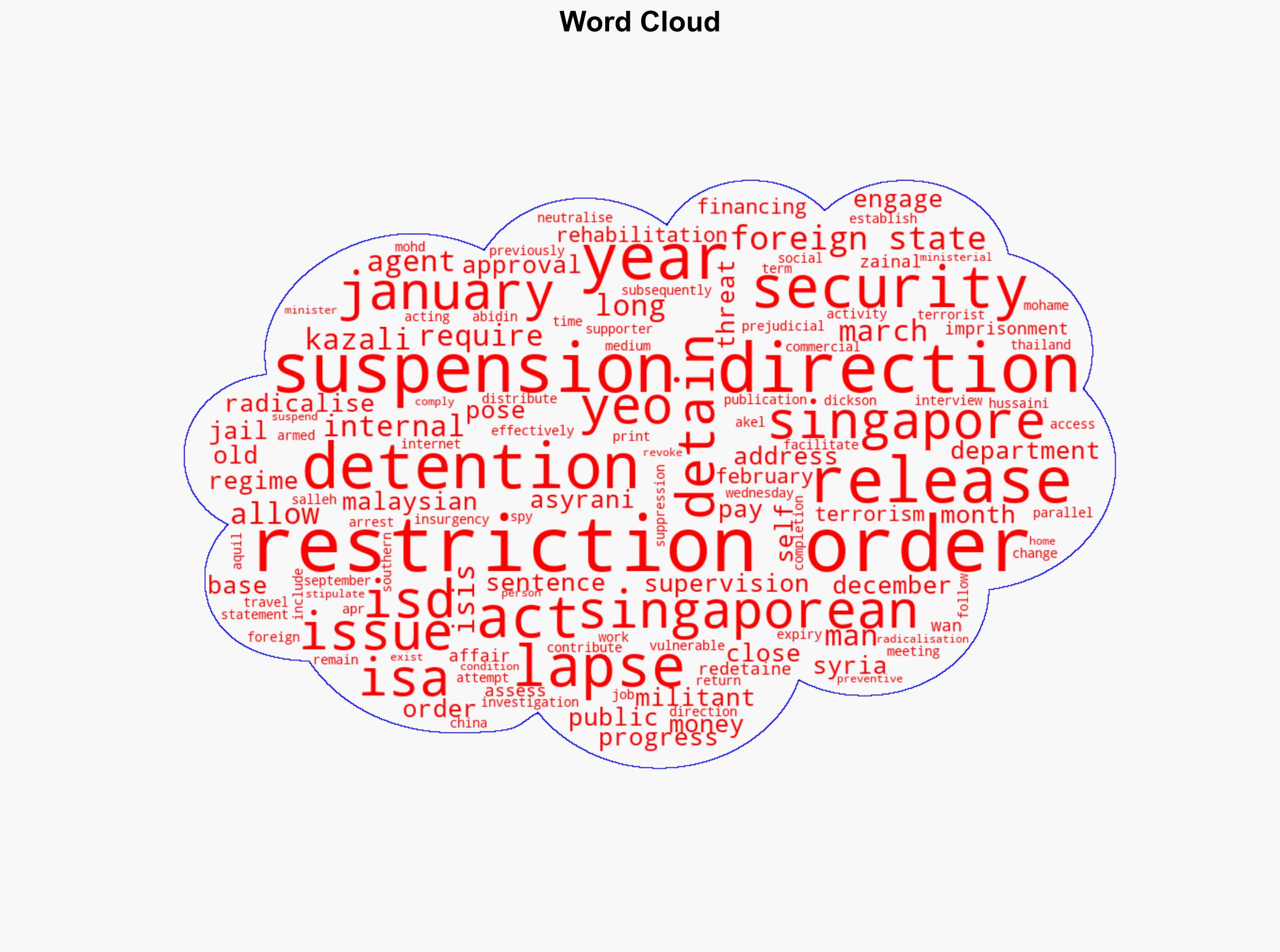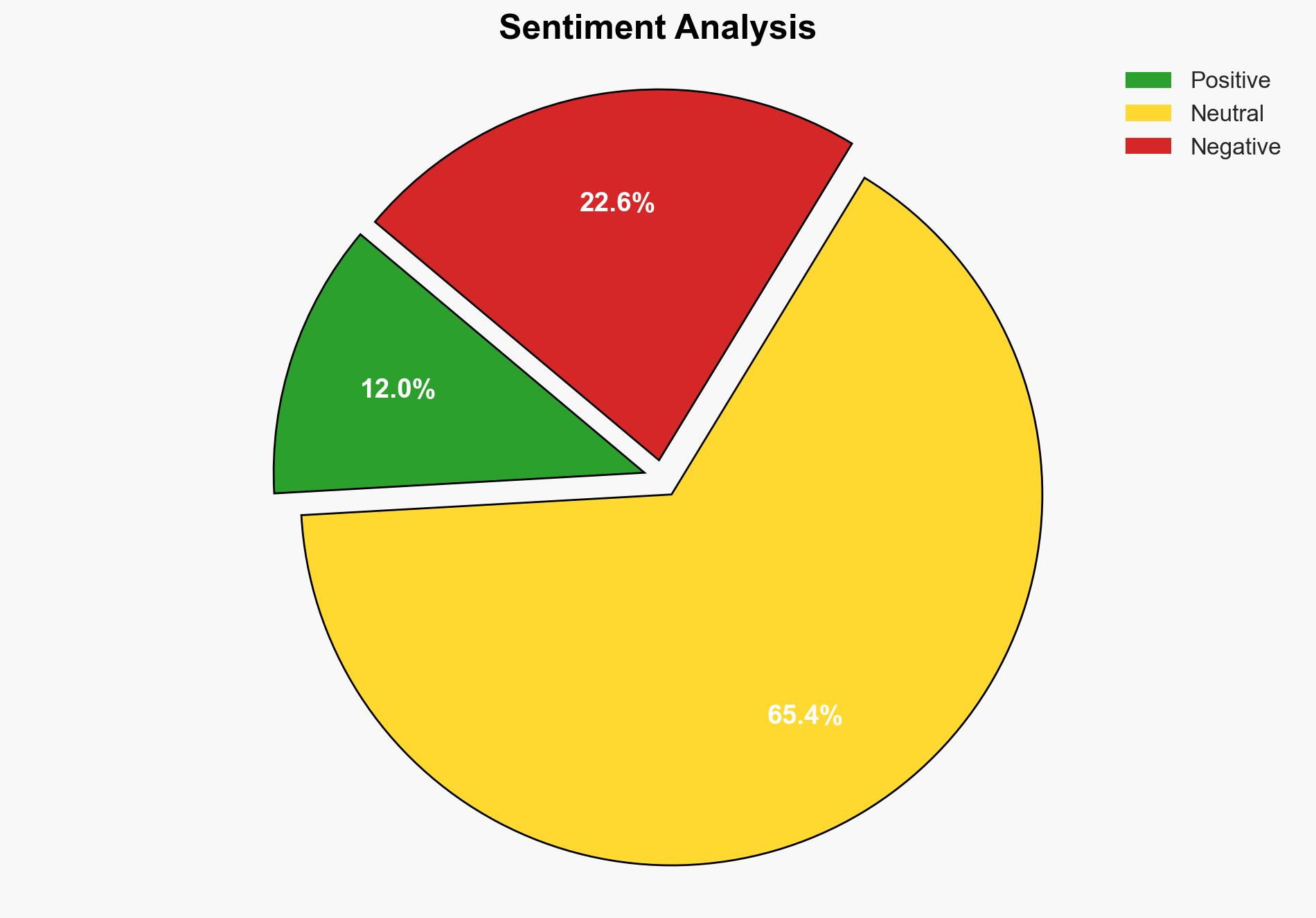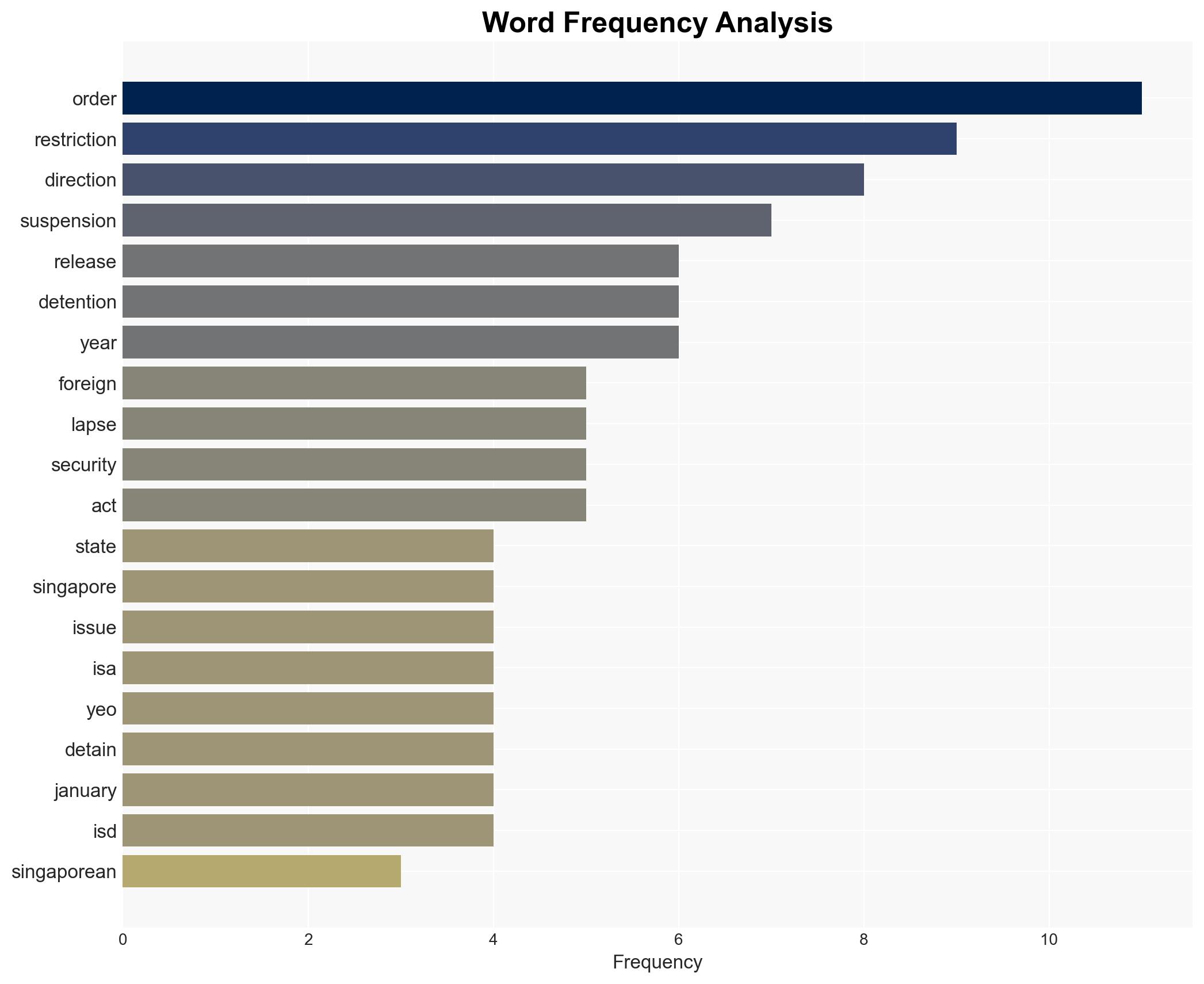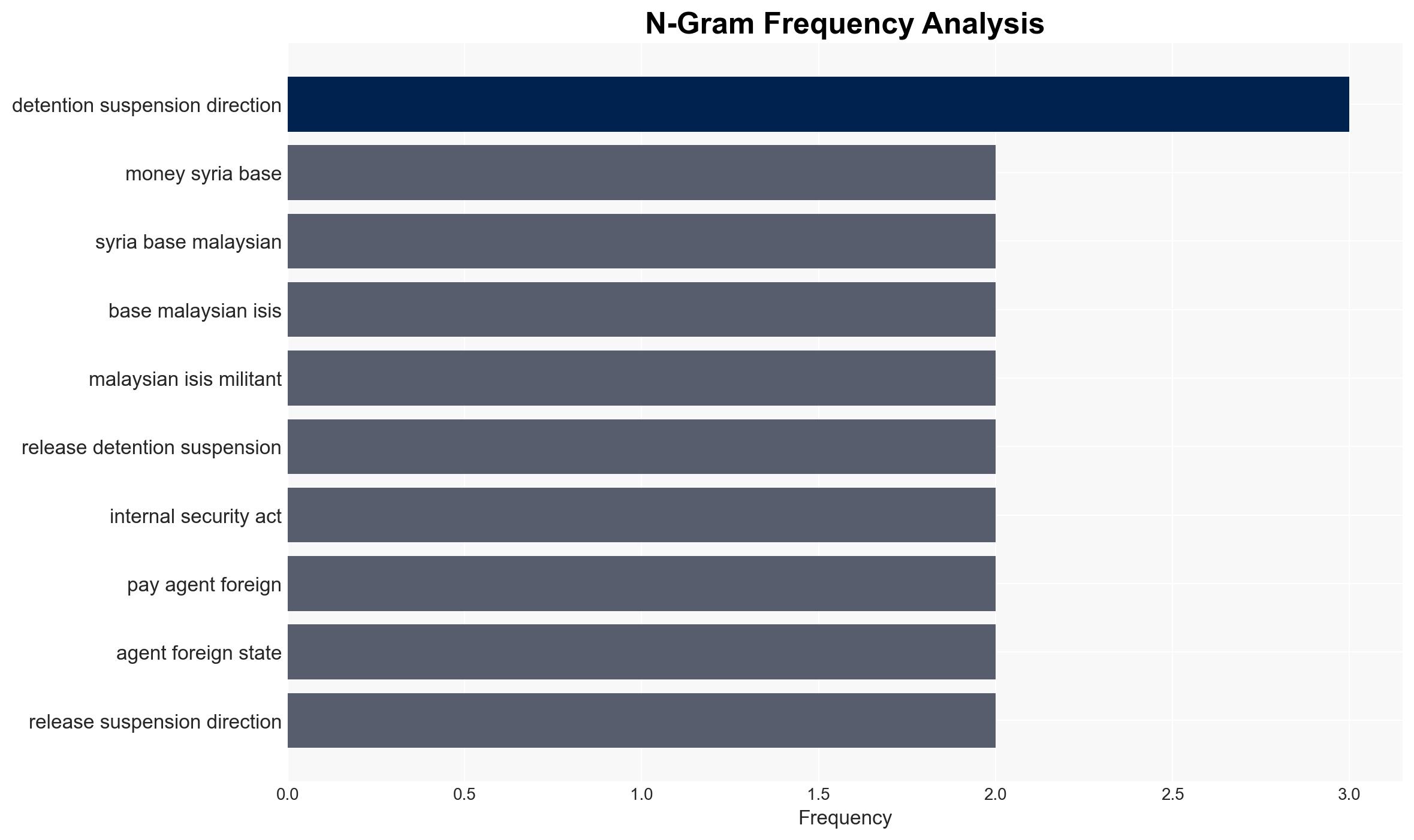Restriction orders against 2 Singaporeans including man who worked for foreign state allowed to lapse – CNA
Published on: 2025-04-02
Intelligence Report: Restriction orders against 2 Singaporeans including man who worked for foreign state allowed to lapse – CNA
1. BLUF (Bottom Line Up Front)
Recent developments indicate that restriction orders against two Singaporeans, including Dickson Yeo and Asyrani Hussaini, have been allowed to lapse. These individuals were previously detained under the Internal Security Act (ISA) for activities related to foreign state espionage and self-radicalization, respectively. The lapse of these orders suggests a reduced threat level, but continued monitoring and rehabilitation efforts are recommended to ensure long-term security.
2. Detailed Analysis
The following structured analytic techniques have been applied for this analysis:
General Analysis
Dickson Yeo was detained for acting as a paid agent for a foreign state and was previously sentenced to jail for espionage activities related to China. His restriction order, issued under the ISA, has lapsed after an assessment that he no longer poses a significant security threat. Similarly, Asyrani Hussaini, who was self-radicalized and attempted to engage in armed insurgency, has shown progress in rehabilitation, leading to the lapse of his restriction order.
The decision to allow these orders to lapse reflects confidence in the effectiveness of Singapore’s rehabilitation programs and the individuals’ reduced risk profiles. However, it underscores the importance of ongoing surveillance and support to prevent recidivism.
3. Implications and Strategic Risks
The lapse of restriction orders for individuals previously involved in espionage and radicalization poses potential risks to national security. While current assessments indicate a reduced threat, the possibility of re-engagement in harmful activities remains. The situation necessitates vigilance to prevent any resurgence of activities that could destabilize regional security or economic interests.
Additionally, the decision may influence perceptions of Singapore’s counter-terrorism and counter-espionage effectiveness, impacting international cooperation and trust.
4. Recommendations and Outlook
Recommendations:
- Enhance monitoring and support mechanisms for individuals released from restriction orders to ensure successful reintegration and prevent recidivism.
- Strengthen collaboration with international intelligence agencies to track and mitigate potential threats from foreign state actors and radicalized individuals.
- Implement regular assessments and updates to rehabilitation programs to adapt to evolving threat landscapes.
Outlook:
In the best-case scenario, the individuals continue their rehabilitation and reintegration without incident, contributing positively to society. In the worst-case scenario, there is a relapse into harmful activities, necessitating renewed detention or restrictions. The most likely outcome is continued progress in rehabilitation, with periodic assessments ensuring compliance and security.
5. Key Individuals and Entities
The report mentions significant individuals such as Dickson Yeo and Asyrani Hussaini. Their past activities and current status are critical to understanding the security landscape and the effectiveness of Singapore’s counter-terrorism measures.





